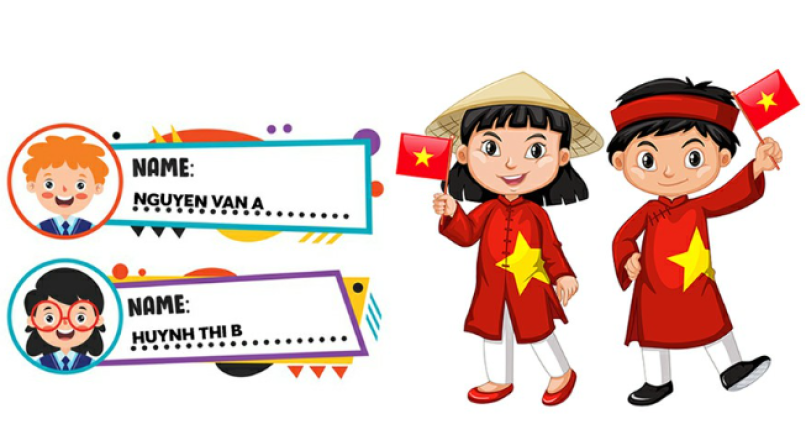Despite this, there are many good reasons to learn Vietnamese. Here in this article, you will discover why it can be a superb choice and its benefits.
Vietnam is home to Halong Bay, caves, beaches, temples, and cities like Hanoi, Hoi An, Ho Chi Minh City, and many more famous places. It combines ancient history, diverse culture, and beautiful landscapes.
Learning Vietnamese as a new language can be a unique experience. It also has definitive positive effects, given that it has nothing but advantages.
Have you ever thought about learning Vietnamese rather than other popular languages? As a Vietnamese native speaker, I find that Vietnamese currently becomes a trending language to learn for foreigners including Koreans, Japanese, Europeans and so on. The fact is that Vietnam is turning into a highly potential market to do business. In order to start a business in Vietnam, you need to know Vietnamese, right? From my view point, there are other special reasons why Vietnamese language is so much fun for you to learn.
1. Business opportunities galore
With the country growing by leaps and bounds, there are abundant business opportunities in every sector of industry, including education, travel & tourism, IT software & hardware, banking & finance etc. As Vietnam is also one of the largest buyers of US products, there are great business opportunities for those who wish to invest in the US.
2. Be a crazy taxi driver
As one of the fastest growing economies in the world, Vietnam has seen a drastic rise in number of cars on its roads, resulting in increased road congestion and air pollution. This means that as an Uber or Grab driver, you’ll be earning big bucks! And with hundreds of expats now offering this service on these online platforms, it’s also a great way to meet new people and make friends.
3. On par with other Asian countries
Although known as one of the poorest countries in 20th century due to wars and colonization, Vietnamese people have managed to keep their traditional culture intact with many able to read and write in Han (traditional Chinese) as well as their own native language. Vietnamese is also spoken in Cambodia, Laos and China – making it a useful language to learn for anyone looking to travel the region.
4. No need to worry about tones!
As there are no tones in English, many foreigners struggle with tonal languages such as Mandarin and Cantonese. The good news: Vietnamese is tonal-free! That’s right – no more guessing which tone you should use when talking about your pet cat or dog! The downside? Vietnamese people can’t hear the difference between British and American accents… so be prepared for misunderstandings if you intend on relocating here.
5. It’s not that hard after all
It may surprise you to know that Vietnamese is part of the Austro-Asiatic language family, which means it’s more related to Khmer, Mon and some tribal languages spoken in India. This shared history makes it easier for native English speakers to pick up this language since familiar words are often used! For example:
This is Vo Van Kiet Street
Wau sa hih street
6. Say what?!

Vietnamese has a large number of loanwords from Chinese, mostly concerning objects or concepts that were unknown to pre-modern Vietnam. At first glance though, the amount of foreign vocabulary used can be overwhelming! Luckily, many English loanwords are also commonly found amongst young people who study them through reading comics or watching American movies.
7. Vietnamese women love foreigners
The world is filled with stories of men who woefully lament the gap between their mother tongue and foreign languages – making for a painful experience in trying to attract a woman from a different culture. Fortunately, there’s no need to worry – as many Vietnamese people will understand what you’re saying even if your pronunciation isn’t perfect! With an estimated 5 million adult learners of English throughout the country, it won’t be long until you find someone who speaks your language fluently!
8. You’ll survive those summer months
When temperatures soar above 40 degrees Celsius (104 Fahrenheit), most people tend to head out for beach holidays where they can swim up a storm and cool off under refreshing waterfalls. But as beaches are sparse in many parts of the country, it’s common to find the locals taking their annual holidays during this time. This means that your summer plans might be hampered by closed restaurants and transport services – meaning you’ll need to learn to stay cool under pressure!
9. It’s not all about tourism
Many foreigners think that Vietnam is just a backpacker’s paradise filled with idyllic beaches, UNESCO World Heritage sites (such as Ha Long Bay), or maybe even someone teaching English at one of Hanoi’s private language schools. But outside of these areas, there are several lesser known locations throughout Vietnam where expats can make an impact on local communities by working hard and making friends with the people live there.
10. Quality of life
Vietnam is a relatively safe country with a stable political environment, offering its citizens a decent standard of living. It’s no wonder that the World Health Organization ranked Vietnam as one of the best countries to retire to, partly because there are plenty of beautiful sights and attractions for those who decide to stay longer term! However, expats should take into account that Vietnam has been listed as one of the 10 least friendly countries in Asia – due to how locals view foreigners – which might mean you’ll have a harder time integrating with the local population compared to other Asian nations.
11. The cost of studying
Foreign students often struggle with financial constraints when deciding where they can study abroad – leading them to choose educational institutions where they can reduce their expenses by using the same currency. Luckily, Vietnamese authorities have simplified this process for people who want to study here, with efficient entry procedures that can allow them to continue their studies at local universities without much preparation.
12. English speakers are prized
Due to Vietnam’s close ties with America and Britain, it means that understanding English is a valuable skill in itself – leading many companies to seek out well-qualified English speakers before anyone else looks good on paper! This has led to an abundance of teaching jobs available throughout the country, making it easier for foreigners living overseas to take advantage of short contract stints whenever they feel like visiting home or working somewhere new! So how ’bout it? Are you ready for Vietnam?!

